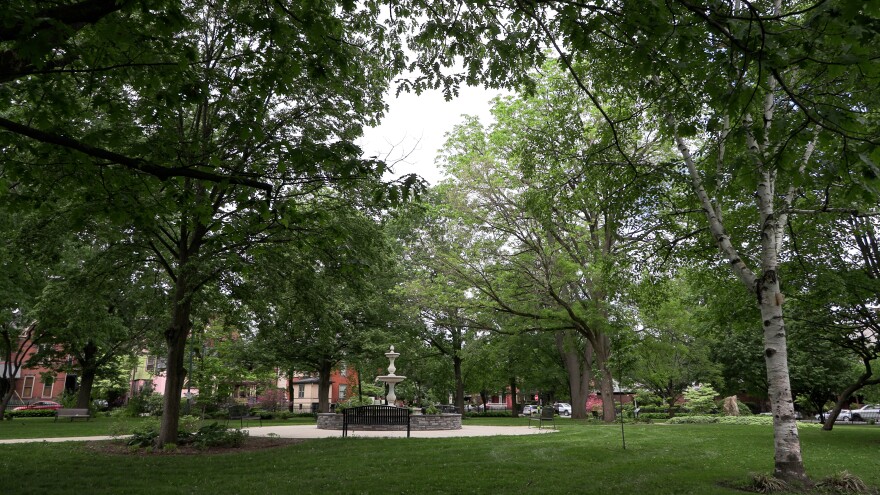
Not far from downtown Williamsport, Way's Garden is a peaceful place with birds chirping close by as sirens, music and other city sounds echo in the distance.
Community members maintain the natural beauty that flourishes on the property, which has been a fixture in Williamsport for more than 100 years.
It was gifted to the city in 1913 with future generations in mind.
The Williamsport Millionaires
The garden is surrounded by grand Victorian homes along what was designated as the Millionaire’s Row Historic District in 1985.
PLANT PEOPLE
An occasional feature highlighting gardening tips, projects and inspiration.
The city of Williamsport once had more millionaires per capita than any other city in the United States, and the high school’s sports teams are known as the “Williamsport Millionaires.”
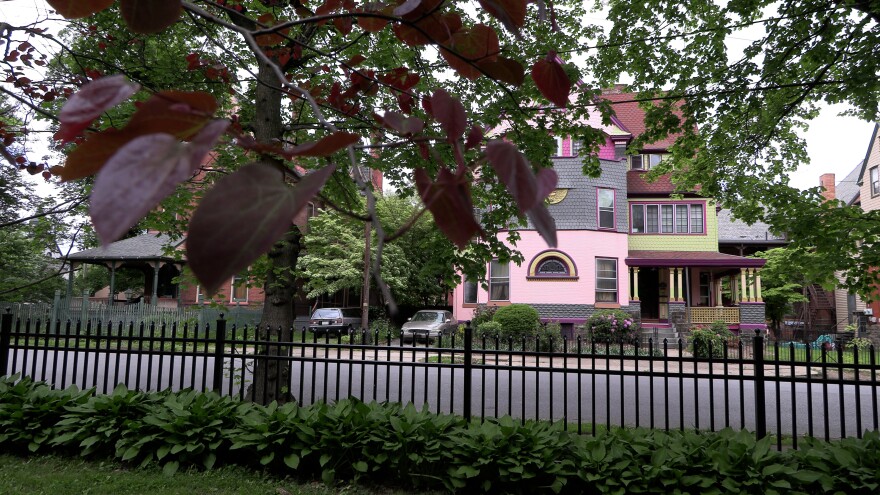
The elaborate homes that were built on West 4th Street in the 1800s were owned by leaders in the lumber industry.
J. Roman Way was one of those millionaires. He lived across the street from the garden at what is now the Taber Museum.
Vintage newspaper articles help tell the story of how he brought the garden into being.
The home that previously stood on the garden's property, known as "White's Castle," was up for sale and it was rumored that a potential buyer had plans to turn it into a brothel or boarding house.
He bought the home in order to prevent that. He had it torn down and placed a permanent garden on the plot, which is more than two and a half acres.
“It was to be used to beautify the city, for rest and relaxation,” said Carl Bower, one of three commissioners who care for the property.
A 1913 article from the Daily Gazette and Bulletin read, "no circuses, menageries, athletic games for exhibition nor any other kind of public exhibition shall ever be allowed upon said park or garden."
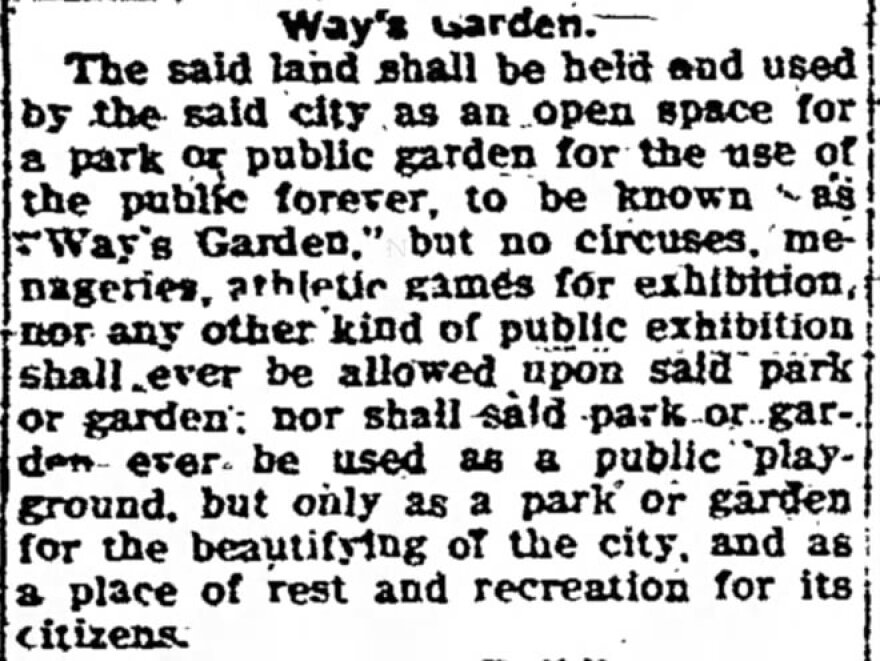
Way’s Garden today
On a weekday morning, small groups and individuals walk along the sidewalks through the garden while others sit on a bench and read a book.
There may be no circuses or athletic games for exhibition, but there are events here. The Bald Eagle Art League hosts the Way’s Garden Art Show every June. Performances are held at the pavilion beside the oval lawn.
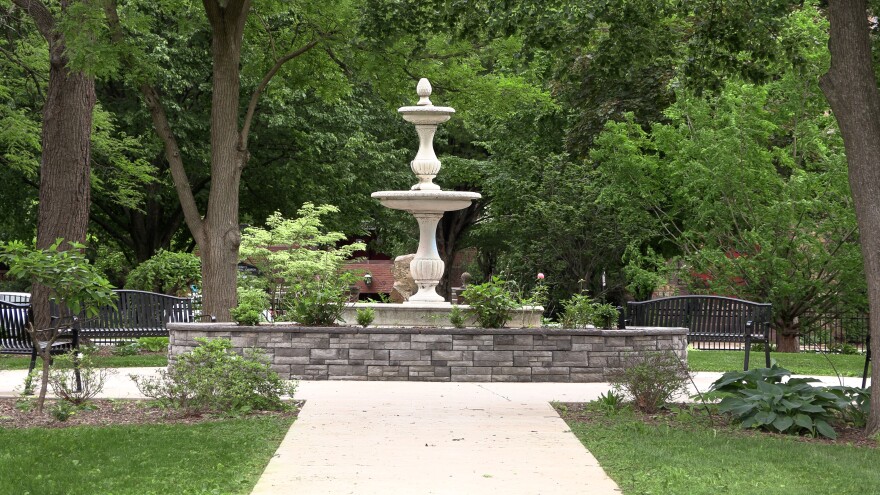
The pavilion was added around the garden’s 100th anniversary in 2013, as well as a water fountain and pergola.
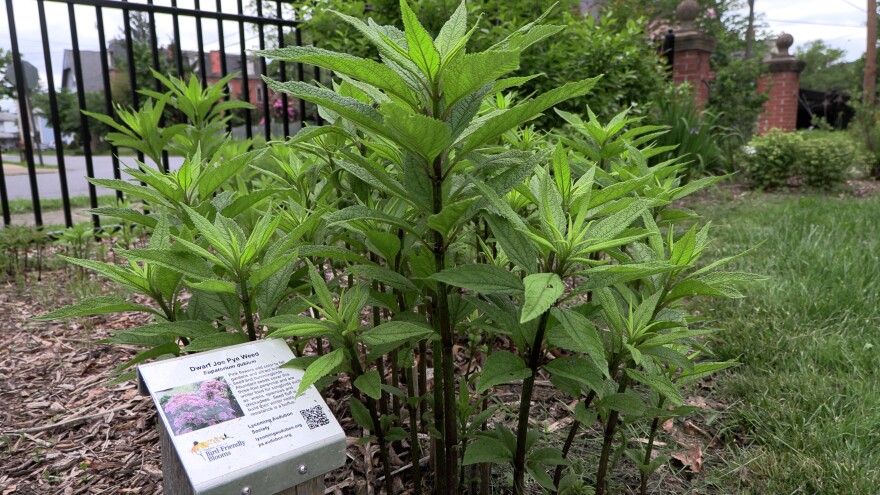
Other events at Way’s Garden include National Day of Prayer events and weddings.
“I do see folks that come here for their wedding pictures or their prom pictures,” said Bower. “But I would like to see more of that.”
A 1915 publication of the Daily Gazette and Bulletin said, "the observant man, woman or child can find many things to see in Way's Garden, while the one who does not use his eyes can only see trees and benches."
Those who are curious can look beyond the greenery and hardscape to read about local history from various plaques and signs. They also can learn about birds and horticulture tips from signage installed by the Lycoming Audubon Society.
Massive maintenance
While the Way’s Garden commission oversees maintenance of the plot, it is owned by the city.
“They take care of the bigger work, the mowing and stuff,” Bower explained. “The commissioners, they were charged with overseeing the maintenance and the upkeep and now the restoration of the garden. That was J. Roman Way’s wish when he created the garden in the early 1900s.”
Way left an endowment for the garden, and the commission obtained grants and donations to make improvements over the years.
Volunteers help with picking up sticks, weeding and other duties.
“Keeping up with the weeds, that’s a big challenge,” Bower said. “The more plants you have, the more competition for the weeds.”
Bower also is an assistant professor of horticulture at Pennsylvania College of Technology, and has tips for other green thumbs, whether caring for a large or small garden.
He says hostas are good at suppressing weeds.
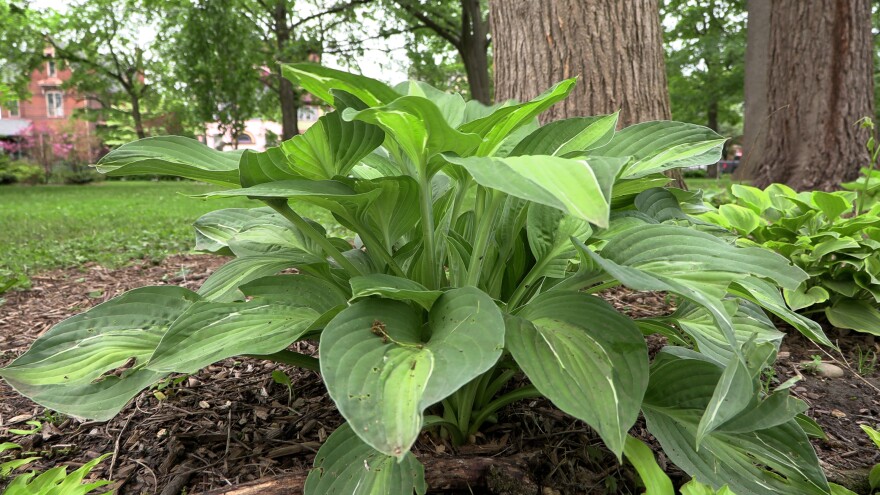
“They’ve been here for years and years and they are so thick that we don’t really have weeds in those areas,” he said. “But when you create new beds and you have bare Earth, even if you mulch that, it becomes a maintenance issue.”
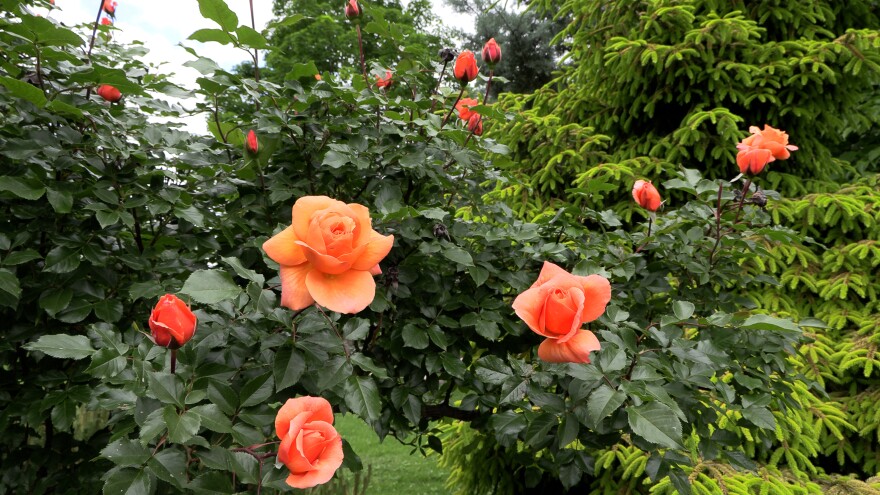
Mulch can help suppress weeds and conserve soil moisture. When organic mulch decomposes, it enriches the soil.
The commissioners plant flowers here that don’t need to be watered much.
“Most of the plants we plant are perennials, so they come back every year," Bower said. "Annuals take a lot more maintenance, a lot more water, and it’s difficult to water a garden like this.”
Bower encourages anyone even curious about gardening to give it a shot.
“Start small but don’t be afraid to try,” he said. “I kill a lot of plants … you’ll have some losses and that’s okay, we all do.”
And losses in a public garden like this can sometimes be more than a dead rose bush.
“Sometimes you get vandalism, broken branches … it’s just a part of being where it is,” Bower said. “But most people are respectful. I get a ton of compliments when I’m here working … and that’s what keeps you going.”
Just as J. Roman Way intended, the garden continues to grow with community support.
“Without the volunteers, without donations and without grants, it would be very difficult to keep up a garden like this,” Bower said.


